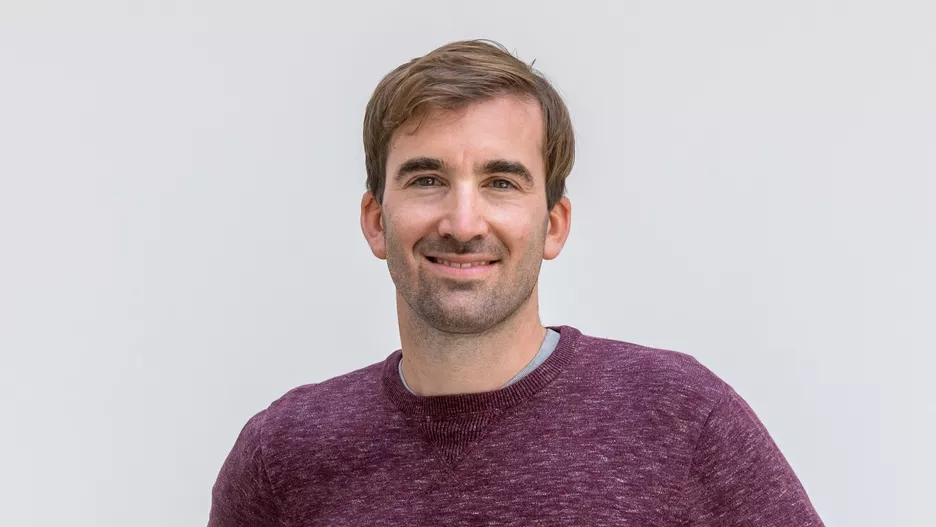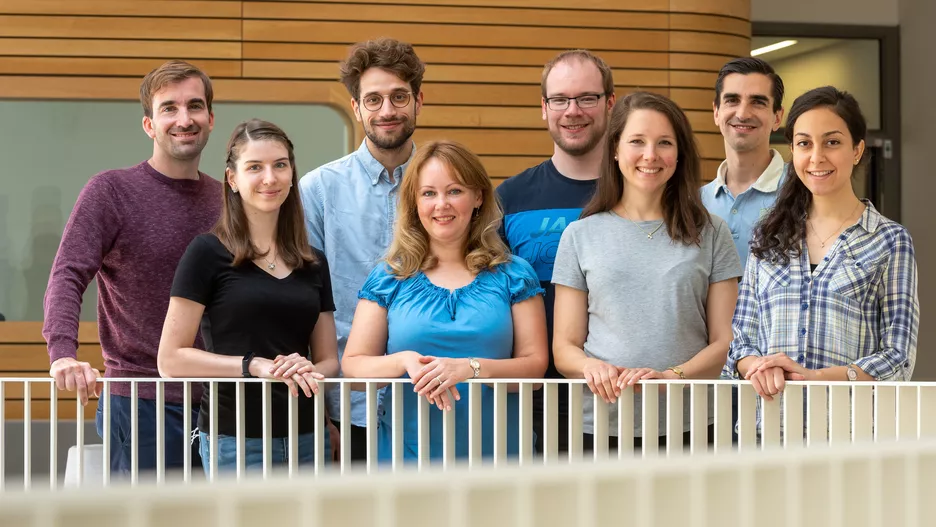This content is only available in English
Simon Heidegger - Translational Immunooncology

Research Focus
Research in our lab focuses on the interaction between immune cells and cancer cells, with particular interest in innate immune mechanisms. We are interested in the molecular patters in malignant cells that are detected by innate immunity and thus initiate cancer immunosurveillance. We want to understand why these processes seem to fail frequently and how they can be augmented in cancer immunotherapies. Hereby, we want to explore how the innate immune system contributes to clinically established immunotherapy such as checkpoint inhibitors and cellular therapies including allogenic hematopoietic stem cell transplantation and CAR-T cell therapy.
Methodologically, we use somatic mutagenesis in different murine cancer models including solid malignancies, acute myeloid leukemia and lymphoma to genetically delete specific components of innate immune pathways to decipher their roles in cancer immunosurveillance and -therapy. We focus our work on patient-centered clinical problems and aim for validation of preclinical findings in bio samples from defined patient cohorts. Ultimately, we strive for rapid translation of murine data to meaningful benefit for cancer patients.

Simon Heidegger studied medicine in Munich, Cambridge and New York. He finished his medical thesis and spent two years as PostDoc in the lab of Stefan Endres at Ludwig-Maximilian-University in Munich. During his fellowship in Internal Medicine and Hematology/Oncology under the supervision of Christian Peschel at Technical University Munich, he continued his research in the field of tumor immunology, and in 2018 acquired the venia legendi (habilitation). In 2019, he spent two months as clinical fellow in the center for cellular therapies at Memorial Sloan Kettering Cancer Center in New York. In the same year he received the Vincenz-Czerny-Award from the German Society for Hematology and Oncology for his current research work. Simon Heidegger is now an attending physician for hematology and oncology at Klinikum rechts der Isar at Technical University Munich in the department of Florian Bassermann and leads a junior research group in the field of immuno-oncology.
- Novartis Inflammation & Lung Cancer (InCa) Award (2021)
- Clinical Science Award, German Society for Immuno- and targeted therapy (DGFIT) (2020)
- Vincenz-Czerny-Award, German Society for Hematology/Oncology (DGHO) (2019)
- Scholarship EHA-ASH Translational Research Training in Hematology (TRTH) (2019)
- International Award in AML research - Lady Tata Memorial Trust (2019)
- Young Investigator Award, Melanoma Research Alliance (MRA) (2019)
- Conquer Cancer Foundation Merit Award, American Society of Clinical Oncology (ASCO) (2018)
- American Society for Hematology (ASH) Outstanding Abstract Achievement Award (2017)
- DGHO Young Investigator Award (German Society for Hematology/Oncology) (2017)
- Junior Researcher Award, German Consortium for Translational Cancer Research (DKTK) (2017)
- Württembergischer Cancer Award (Dres. Carl Maximilian and Carl Manfred Bayer-Foundation) (2016)
Bek, S., Stritzke, F., Wintges, A., Nedelko, T., Bohmer, D.F.R., Fischer, J.C., Haas, T., Poeck, H., Heidegger, S. (2019). Targeting intrinsic RIG-I signaling turns melanoma cells into type I interferon-releasing cellular antitumor vaccines. Oncoimmunology 8, e1570779.
Fischer, J.C., Bscheider, M., Eisenkolb, G., Lin, C.C., Wintges, A., Otten, V., Lindemans, C.A., Heidegger, S., Rudelius, M., Monette, S., Porosnicu Rodriguez, K.A., Calafiore, M., Liebermann, S., Liu, C., Lienenklaus, S., Weiss, S., Kalinke, U., Ruland, J., Peschel, C., Shono, Y., Docampo, M., Velardi, E., Jenq, R.R., Hanash, A.M., Dudakov, J.A., Haas, T., van den Brink, M.R.M., Poeck, H. (2017). RIG-I/MAVS and STING signaling promote gut integrity during irradiation- and immune-mediated tissue injury. Sci Transl Med 9,
Haas, T., Heidegger, S., Wintges, A., Bscheider, M., Bek, S., Fischer, J.C., Eisenkolb, G., Schmickl, M., Spoerl, S., Peschel, C., Poeck, H., Ruland, J. (2017). Card9 controls Dectin-1-induced T-cell cytotoxicity and tumor growth in mice. Eur J Immunol 47, 872-879.
Heidegger, S., Anz, D., Stephan, N., Bohn, B., Herbst, T., Fendler, W.P., Suhartha, N., Sandholzer, N., Kobold, S., Hotz, C., Eisenacher, K., Radtke-Schuller, S., Endres, S., Bourquin, C. (2013a). Virus-associated activation of innate immunity induces rapid disruption of Peyer's patches in mice. Blood 122, 2591-9.
Heidegger, S., Gossl, D., Schmidt, A., Niedermayer, S., Argyo, C., Endres, S., Bein, T., Bourquin, C. (2016). Immune response to functionalized mesoporous silica nanoparticles for targeted drug delivery. Nanoscale 8, 938-48.
Heidegger, S., Kirchner, S.K., Stephan, N., Bohn, B., Suhartha, N., Hotz, C., Anz, D., Sandholzer, N., Stecher, B., Russmann, H., Endres, S., Bourquin, C. (2013b). TLR activation excludes circulating naive CD8+ T cells from gut-associated lymphoid organs in mice. J Immunol 190, 5313-20.
Heidegger, S., Kreppel, D., Bscheider, M., Stritzke, F., Nedelko, T., Wintges, A., Bek, S., Fischer, J.C., Graalmann, T., Kalinke, U., Bassermann, F., Haas, T., Poeck, H. (2019a). RIG-I activating immunostimulatory RNA boosts the efficacy of anticancer vaccines and synergizes with immune checkpoint blockade. EBioMedicine 41, 146-155.
Heidegger, S., Wintges, A., Stritzke, F., Bek, S., Steiger, K., Koenig, P.A., Gottert, S., Engleitner, T., Ollinger, R., Nedelko, T., Fischer, J.C., Makarov, V., Winter, C., Rad, R., van den Brink, M.R.M., Ruland, J., Bassermann, F., Chan, T.A., Haas, T., Poeck, H. (2019b). RIG-I activation is critical for responsiveness to checkpoint blockade. Sci Immunol 4,
Poeck, H., Wintges, A., Dahl, S., Bassermann, F., Haas, T., Heidegger, S. (2021). Tumor cell-intrinsic RIG-I signaling governs synergistic effects of immunogenic cancer therapies and checkpoint inhibitors in mice. Eur J Immunol 51, 1531-1534.
Schuller, V.J., Heidegger, S., Sandholzer, N., Nickels, P.C., Suhartha, N.A., Endres, S., Bourquin, C., Liedl, T. (2011). Cellular immunostimulation by CpG-sequence-coated DNA origami structures. ACS Nano 5, 9696-702.
PD Dr. Simon Heidegger
Technical University of Munich
School of Medicine
Clinic and Polyclinic for Internal Medicine III
Phone: +49 89 4140 8303
E-Mail